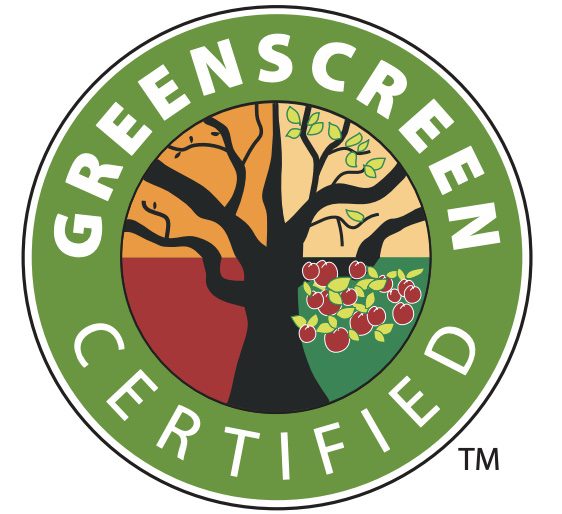How Eco-Friendly Purchasing supports a shift to better foodware for healthier people and planet.
This is a guest blog post by Ben Schleifer and Sue Chiang, MPP, MPH, of the Center for Environmental Health (CEH).
Americans use an estimated one trillion disposable food service products each year. In addition to the environmental impact from this massive amount of single-use waste, foodware can contain toxic chemicals that can lead to serious health issues, including reproductive and developmental toxicity, autoimmune and metabolic disorders, respiratory issues, neurodevelopmental effects, and cancer.
Fortunately, cities are positioned to lead by example by purchasing eco-friendly products and services. Eco-Friendly Purchasing policies promote sourcing and purchasing better goods and services that benefit human health and the environment. Environmentally preferable products and services can lessen people’s exposures to a wide variety of harmful chemicals — and the purchasing decisions that cities make can decrease demand for the extraction, manufacturing, and disposal of toxic chemicals and materials in the first place.

CityHealth included Eco-Friendly Purchasing in its 2.0 policy package because evidence linked the policy to better health outcomes, it has a track record of bipartisan support, and it has the potential to promote health equity. CityHealth partnered with the Center for Environmental Health (CEH), a national nonprofit dedicated to protecting people and the environment from toxic chemicals, to provide expertise and technical assistance to help cities adopt these policies.
CityHealth’s Eco-Friendly Purchasing policy covers three product categories: cleaning supplies, furnishings (such as furniture, carpeting and flooring), and foodware. These product categories were chosen because they can contain chemicals that pose a significant threat to human health throughout the product lifecycle, have a disproportionately high impact on workers and people with lower wealth, are typically purchased in large quantities by cities, and can readily be replaced with safer alternatives. To earn a gold or silver CityHealth medal, cities must meet the performance requirements for one of the three product categories. Cities can earn a bronze medal by adopting an Eco-Friendly Purchasing policy that requires annual reporting.
This blog takes a deeper dive into disposable foodware — and why cities should prioritize shifting their purchasing to eco-friendly alternatives. CityHealth established the following foodware performance requirements in the Eco-Friendly Purchasing medal criteria.
Foodware: Cities must meet ALL of these performance requirements:
- Prohibit EPS foam (“Styrofoam”) and PFAS in foodware.
- Prefer reusables.
- Where reusables are not feasible, prioritize foodware that are recyclable or compostable in local facilities.
- Use Biodegradable Products Institute (BPI) or Compost Manufacturing Alliance (CMA) certifications to define compostable.
-
Require single-use accessories to be made available only upon request.
1. Prohibiting Toxic Chemicals
CityHealth’s first foodware procurement requirement prohibits styrofoam and Teflon-like chemicals known as per- and polyfluoroalkyl substances (PFAS). Expanded polystyrene (EPS) foam — often referred to as styrofoam — is a common foodware packaging material. Styrene, a chemical used to manufacture polystyrene foodware, is regarded as a human carcinogen and has been shown to leach from the food packaging into the food. Polystyrene is not typically accepted in local recycling programs and can be slow to degrade — and can be detected in ground soil, aquatic environments, indoor air, and in the atmosphere.
While more than 100 cities and counties across the U.S. have bans on polystyrene foam food containers, many of the alternatives can contain PFAS. This group of over 12,000 chemicals are known as “forever chemicals” because they can take more than one thousand years to break down in the environment, and are known to cause cancer, thyroid disease, birth defects, decreased fertility, and other serious health issues. They also act as endocrine-disrupting chemicals (EDCs) due to their ability to interfere with hormone systems and impair the immune system. By composting molded fiber products with PFAS in them, these chemicals can migrate into the compost and be absorbed by the plants or food grown in that compost.
 Going above and beyond: While not a requirement to meet CityHealth’s Foodware criteria, the Center for Environmental Health (CEH) has recently developed a robust way of assessing the chemical makeup of disposable food service ware through the GreenScreen Certified™ Standard for Food Service Ware. This groundbreaking certification program, developed in partnership with Clean Production Action, sets a new safety standard for everyday items like disposable plates and bowls that do not contain toxic PFAS plus thousands of other chemicals of concern. Cities can ask for GreenScreen Certified food service ware to encourage the development of products with preferred chemistry.
Going above and beyond: While not a requirement to meet CityHealth’s Foodware criteria, the Center for Environmental Health (CEH) has recently developed a robust way of assessing the chemical makeup of disposable food service ware through the GreenScreen Certified™ Standard for Food Service Ware. This groundbreaking certification program, developed in partnership with Clean Production Action, sets a new safety standard for everyday items like disposable plates and bowls that do not contain toxic PFAS plus thousands of other chemicals of concern. Cities can ask for GreenScreen Certified food service ware to encourage the development of products with preferred chemistry.
2. Reuse
Foodware’s disposability can magnify the effects of any toxic chemicals used in its manufacture, with the potential for substances to enter the environment at a landfill or through incineration. Even most “recyclable” foodware is unlikely to be recycled due to limited markets for the material and because the products are often too contaminated with food. CityHealth’s foodware procurement requirements state that cities should prefer reusable foodware whenever possible — as opting for reusables over single-use products reduces waste, greenhouse gas emissions, and cost.
3. Recycling
When reusable foodware is not feasible, cities should prioritize foodware that is either compostable or recyclable — if they have facilities equipped to properly process it. Unfortunately, much of the foodware plastic used in the U.S. wasn’t designed to be recyclable and is often too contaminated with food, and changes in the global recycling industry have impacted many cities’ recycling capacity. Cities that have local recycling capabilities can ensure that recyclable foodware avoids the landfill or incinerator by working with their local facility to identify products that will be accepted.
4. Composting
Similarly, a local industrial composting program is a good option for cities. CityHealth’s foodware performance requirements state that cities should use composting standards established by the Biodegradable Products Institute (BPI) or Compost Manufacturing Alliance (CMA) when defining what products are compostable.
5. Single Use Food Accessories
CityHealth’s final foodware performance requirement asks cities to require single-use accessories (such as straws, utensils, spill plugs, stirrers, etc.) to be made available only upon request. Products such as plastic straws can end up on beaches and in waterways, impacting aquatic ecosystems. Making these items available only by request has the potential to reduce unnecessary waste.
Cities that adopt Eco-Friendly Purchasing policies are making a commitment to the health of their residents and the environment. These policies can be cost effective, especially when considering the preference for reusables, which can reduce ongoing purchase, shipping, storage, and disposal costs. A commitment to eco-friendly foodware can set cities up for success in other eco-friendly product categories, and can lead their communities to a healthier, more sustainable future.



 Ben Schleifer is the food program coordinator at the Center for Environmental Health (CEH).
Ben Schleifer is the food program coordinator at the Center for Environmental Health (CEH).  Sue Chiang, MPP, MPH, is the director of the food program at the Center for Environmental Health (CEH).
Sue Chiang, MPP, MPH, is the director of the food program at the Center for Environmental Health (CEH).
